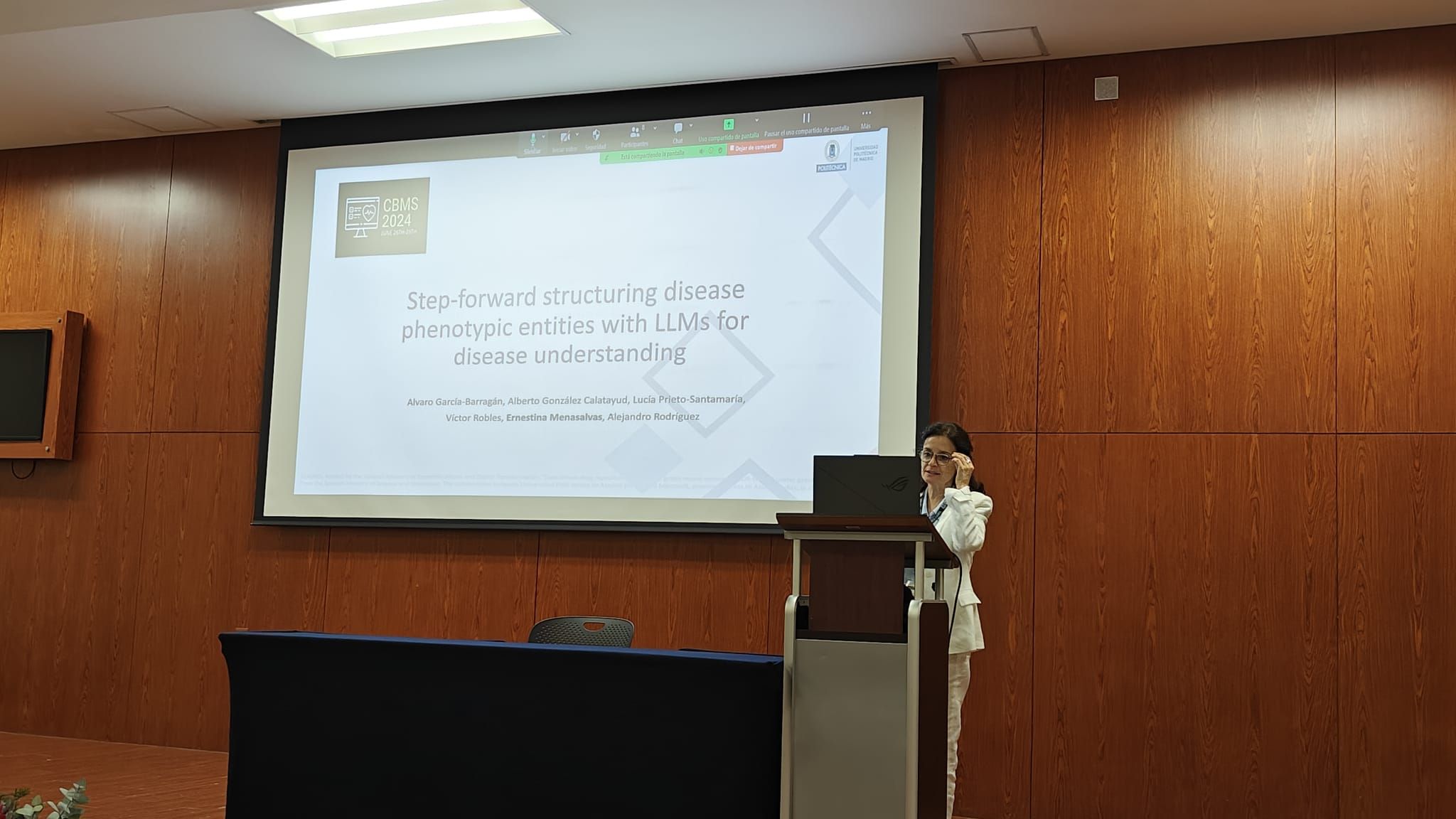HIGHLIGHTS FROM IEEE CBMS 2024

Professor Ernestina Menasalvas from Universidad Politécnica de Madrid (UPM),
Project Director of ELADAIS, represented the initiative on the global stage at the 37th IEEE International Symposium on Computer-Based Medical Systems (CBMS 2024), held in Guadalajara, Mexico. This renowned conference brought together international experts at the forefront of medical informatics, biomedical computing, and digital health, offering an ideal platform to showcase the cutting-edge work being carried out within ELADAIS.
Presenting Innovation: Phenotype extraction with LLMs
During her presentation, Professor Menasalvas shared groundbreaking advancements in the application of Large Language Models (LLMs) to extract phenotypic features from biomedical texts, highlighting developments achieved under both the 3DR-GNN and ELADAIS projects. This approach aims to improve the interpretability and standardisation of unstructured medical data, particularly clinical narratives, discharge summaries, and pathology reports.
Using LLMs such as BioBERT and GPT-based models in biomedical contexts has shown promise in identifying nuanced phenotypic traits, supporting the early detection of disease patterns, and accelerating personalised treatment planning. This is particularly relevant in the era of precision medicine, where patient-specific data plays a vital role in shaping therapeutic strategies.
The role of ELADAIS
Within ELADAIS, these techniques are being adapted to support the secondary use of health data in a secure, decentralised, and privacy-preserving environment. By applying natural language processing (NLP) and AI tools to electronic health records, the project is creating pathways for federated learning, allowing researchers to generate valuable insights without compromising patient confidentiality.
The use of LLMs in this context also enhances ELADAIS’s ability to contribute to the European Health Data Space (EHDS) by enabling semantic harmonisation, a crucial step in ensuring data interoperability across diverse healthcare systems. Phenotypic information, once structured, can be mapped to standards such as SNOMED CT or the OMOP Common Data Model, supporting meaningful cross-institutional and cross-border analyses.
Global recognition, local impact
Participation in IEEE CBMS 2024 reinforces ELADAIS’s commitment to aligning Spanish and European health data infrastructures with global research standards. It also underscores the value of international collaboration in driving digital health innovation. The symposium offered a vital opportunity to exchange insights with academic peers, clinicians, and technology experts working at the intersection of AI, medicine, and data science.
ELADAIS continues to strengthen its position as a trailblazer in digital health, harnessing the power of artificial intelligence to transform how we understand, manage, and utilise health data. As healthcare systems worldwide shift toward data-driven, patient-centred models, the tools and frameworks developed within ELADAIS are paving the way for a more connected and responsive future.

